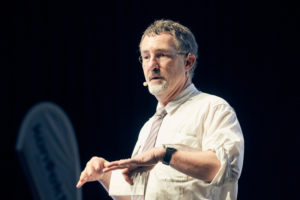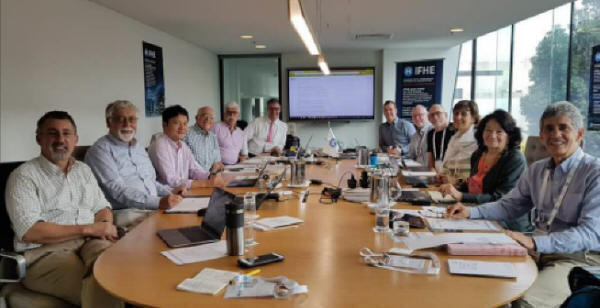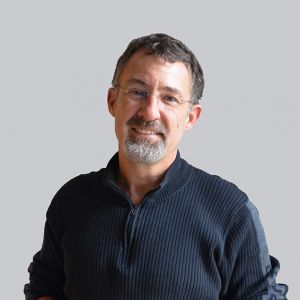Healthcare is an increasingly international undertaking, with more and more designers and providers operating outside the United States. I’m proud to serve on the Health Care Institute (HCI) leadership team, helping our members be part of this evolution. HCI represents the United States within the International Federation of Healthcare Engineering (IFHE), actively working to build value for HCI members and for our colleagues in similar organizations around the world.
In early October, HCI President Jeff Kent and I represented HCI (and the United States) at the 2018 IFHE Congress in Brisbane, Australia.

Representing HCI at the IFHE Congress in Brisbane, Australia
This congress marked the start of a new direction for IFHE — indicative of the quickly evolving Healthcare environment – as they changed their name from Hospital Engineering to Healthcare Engineering. (By the way, I tried to get them to change the name from “Engineering” to “Infrastructure”, in recognition of HCI’s and IFHE’s broad membership. Apparently, to the rest of the world, the word ‘Engineering’ includes all of the design and facility management professions, so they overruled me – sorry to my friends who are architects and other professionals!)
The IFHE is a Congress of national organizations, representing more than half of the countries of the world. Its purpose is to support the members of the member organizations in becoming the best professionals we can be. At HCI, we see the organization as a way to build bridges to our colleagues around the world, so that we can share learnings and resources.
In the past, IFHE has had a relatively limited impact on HCI members. It currently offers three major resources: a library of electronic articles; a yearly journal, (which we distribute free to all HCI members); and a biannual Congress, to which they invite the best thinkers from around the world to collect and engage in peer-to-peer learning.

Sitting at the table (far left) with the IFHE Executive Council, representing worldwide expertise in healthcare facility engineering.
With HCI’s encouragement, IFHE’s leadership has focused strongly in the last few years on building member value. The organization is seeking to use the power of tens of thousands of healthcare infrastructure professionals from around the world to make us all better, and, ultimately, to make the world a better place. Towards this end, the IFHE will be focusing, in 2019, on the following areas:
- Develop extensive award programs available to all healthcare organizations, so that each of us has opportunities for international recognition for our work.
- Develop online peer-to-peer communications, similar to a list serve, to create a global community of resources, so that we have a greatly expanded community of resources.
- Develop an expertise bank, where we can identify people with particular expertise, so that when someone needs help they know where to reach out.
Pushing for a carbon neutral commitment
Among the critical conversations during the Congress was the release of the Intergovernmental Panel on Climate Change’s (IPCC) report on global warming of 1.5 degrees Celsius.
As you probably know, in 2015, the World Healthcare Organization (WHO) Director General declared climate change to be the defining health issue of this century. The IPCC report underscores this, saying that if we do not bend the curve now, not just our children, but all of us will experience very costly impacts. As the people who are creating and operating the energy systems of the world’s healthcare system; and consistent with the healer’s foundational principal to first do no harm, we debated the right response from the IFHE.
During the IFHE Congress, HCI strongly pushed (the IFHE) for a commitment to encourage healthcare buildings to achieve carbon neutrality by 2030 (for new buildings) and 2050 (for all buildings). Kaiser, the University of California and Gunderson here in the US are leading the way and showing the world that it can be done. In the end, the IFHE did not come to closure on this issue —yet. But, the HCI is leading an effort to build support for such a goal, and it is likely to come to fruition in 2019.
How to get involved
I’m honored to represent HCI to this august body. It is a heavy responsibility, but one that matters. We are determined to use this opportunity to build value of all healthcare engineering professionals around the world and to provide value and opportunity especially to HCI members. Discover more about HCI here.
Interested to learn more about HCI and how you can get (more) involved, contact us.
Interested in what you see? Subscribe to receive monthly news and information
more tailored to what you need.

